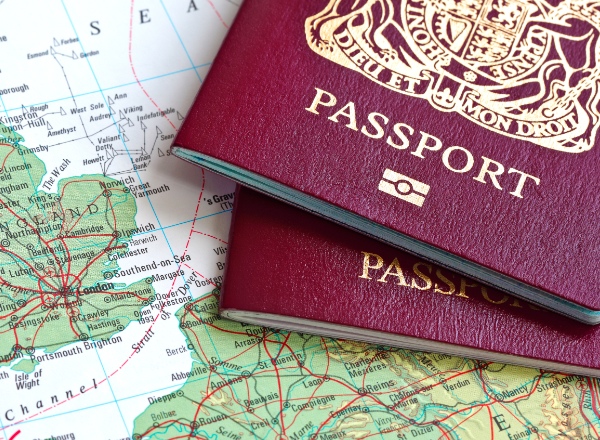Setting up a business in Belgium as a non-EU citizen is the topic of this three-part series of articles. After discussing how to get started (Part I.) and reviewing the next steps to take (Part II.), let's see how is it to live in Belgium as an enterpreneur.

Residency – Family – Social Security
The right to become a resident in Belgium (first on a temporary basis, of course) is almost automatic upon the issuance of the above-mentioned permits. The right of residency will generally have a duration limited to the duration of the work permit, the professional card or the wealth card, which can of course be renewed. In principle, the residence authorization will also be renewed until an unlimited permit to stay in Belgium can be obtained (the law does not specify the period of time before such a right to stay can be claimed, but five years’ residence is considered by the administration as appropriate). Once the Ministry will have confirmed that they agree to issue the professional card or the work permit, you will be able to pick up the type-D visa at the Embassy. When this visa is issued, the professional card is available at a guichet d’entreprises (cost to pick it up: EUR 180).
When you arrive in Belgium with your type-D visa, if you wish to become a resident, you must:
• have a personal address, by renting or purchasing a house or an apartment (cost: approximately EUR 500/month minimum);
• take proof of this address (rental contract or purchase deed) to the relevant city hall, with your professional card and your ID as well as a new medical certificate and a criminal record, for registration;
• agree to a short visit from the police, around 10 days after your registration at city hall;
• pick up your residence permit, between one week and two months after the police visit, depending on the city. This residence permit will give you the right to travel in Schengen States for short stays (max. 90 days).
As far as your family members are concerned (spouse and children only), you will have to request a visa for them. The following documents must be provided:
• valid national passport (validity 15 months after application);
• certified true copy of the birth certificates of the spouse and children (with an apostille, if necessary, and dated within the last six months), translated into French or Dutch;
• marriage certificate for the spouse with an apostille (dated within the last six months), translated;
• proof that the principal visa applicant is authorized to reside in Belgium (copy of work permit or professional card);
• nationwide criminal history record.
In order to be covered by social security (which is mandatory), self-employed persons must register at a social fund affiliated with INASTI (UCM, Partena, Acerta, etc.). The minimum fee for this fund is approximately EUR 250/month (for persons with very low or no income), and can equal up to approximately 20% of revenue.
Employees are registered for social security through their employers. In both cases, you will also have to sign up for a mutuelle (Partenamut, Euromut, Mutualité chrétienne, etc.) to obtain medical cover, which requires you to hold an SIS card.

Belgian citizenship
The act of 4 December 2012 “modifying the Belgian Nationality Code in order to make the acquisition of Belgian nationality neutral with regard to immigration” was published in the Belgian Official Journal on 14 December 2012. It entered into force on 1st January 2013. First of all, to apply for naturalization or a declaration of nationality, foreigners must, at the time of filing or declaration, have legal authorization to reside in Belgium and they must have established their main residence there for an uninterrupted period of time. Economic and social integration criteria are now imposed and the knowledge of one of the national languages is generally required.
The two major means of acquiring nationality, naturalization and declaration, continue to exist, but their requirements have changed.
Naturalization can be sought by persons of legal age who are residing legally in Belgium and have “proven” or can “prove exceptional merits to Belgium” in the scientific, athletic or socio-cultural fields.
An explanation of “why it is nearly impossible to obtain Belgian nationality by declaration” should also be provided. Naturalization can also be requested by persons of legal age who have the status of stateless persons in Belgium and who have resided legally in Belgium for at least two years. Integration into Belgian society and knowledge of a national language will be important in the decision to grant or refuse naturalization made by the House of Representatives.
Tax issues
Taxation is a frequent concern:
If I am a Belgian resident, how will this affect my tax situation? There is no one-size-fits-all answer to this question.
The principles are as follows:
1. You should never be subject to double taxation, as according to the tax convention that has most likely been signed between Belgium and your country, income earned in your country is taxed there, and only your Belgian income is taxed in Belgium. This is the first thing to check: the convention between your country and Belgium is available on the Internet.
2. As in most European countries, there is a distinction between social charges, which are used to finance health and retirement systems, and taxes. Social charges apply only to employment situations. For instance, on a gross salary of EUR 5,000/month, an employer will pay approximately 45% in social charges (EUR 2,250) and the employee will pay 13.07% (EUR 653.50). As a result, the employer’s cost will be EUR 7,250 while the employee will take home only 5,000, minus 653.50, minus taxes, depending on his/her personal situation. Generally, this will result in approximately EUR 3,250 after taxes.
3. Taxes seem to be high for employees in Belgium. This burden can be reduced through a special tax regime for foreigners, which will also slightly impact social charges. This special tax regime allows foreign employees to pay taxes only on the portion of remuneration received while living in Belgium. Through a loophole, you will be considered by the tax administration as a nonresident, even if you are actually a resident. Example: your salary is EUR 100K/year and you spend 90% of the year abroad. You will pay taxes only on 10% of your salary, i.e. EUR 10,000 and, depending on the situation, your total taxes will be approximately EUR 3,500, i.e. only 3.5% of your total remuneration!
4. People with wealth cards do not have to worry about their tax situation. Belgium is very friendly to wealthy people who do not work. Most of the time no taxes apply to capital or assets, and there are no net worth taxes or capital gains taxes on shares.
5. With a professional card, in principle, you will pay taxes only on your Belgian income, if applicable. Of course, the company you set up will in most cases be taxed on any profits at the flat rate of 33%. But it is possible to deduct many business expenses before determining the taxable profit. In addition, “notional interests” enable companies to deduct 4% of the value of net assets.
If you like our article, follow us on facebook!

Dr. Rostás Csilla graduated as a lawyer in 2008 from the University of Szeged Faculty of Law and some years later as a legal translator. She has been living and working in Brussels since 2012.
She works as a lawyer at Lexial law firm and is the founder of her own, Brussels-based company: Across Continents Translations.





